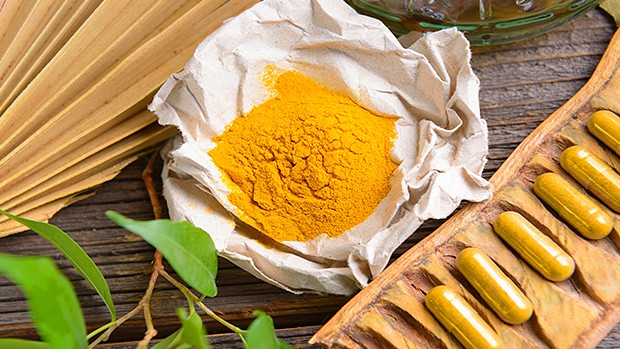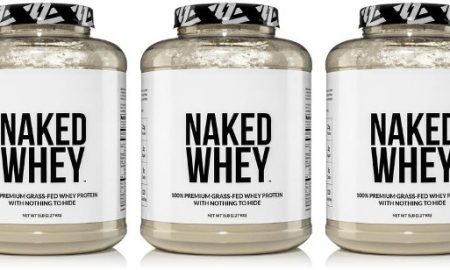
In recent times there has been an increasing number of studies on Berberine and its effects on the human body. Since being dubbed ‘exercise in a bottle’ CrossFitters and functional fitness enthusiasts, as well as many sites like Fusion, have been particularly interested in the supplement’s benefits and just how effective it can be for athletes. Academic experts from this website wrote more than a dozen of papers related to this issue.
Scientifically, Berberine is a chemical discovered in several crops. Including European barberry, gold seal, gold thread, Oregon wine, philodendron, and tree turmeric. For diabetes, high cholesterol, and high blood pressure, Berberine is most frequently given by mouth. To cure wounds and canker sores, some individuals add berberine straight to the skin.
Research has suggested that, among other circumstances, people can use berberine to lower blood sugar, obesity, and inflammation. Nevertheless, side effects may include nausea and stomach upset. For thousands of years, Berberine was part of Chinese and Ayurvedic medicine. It operates in the environment in various aspects and can create modifications in the cells of the body.
Studies indicate that berberine has a “harmonious allocation” in the body to multiple objectives. This allows it to battle certain circumstances while minimizing side effects. Many berberine trials have shown that it can cure various diseases of metabolic health, including diabetes, obesity, and heart problems.
How is it going to operate or work?
Berberine may trigger heartbeats to be faster. This may assist individuals with certain circumstances of the core. Berberine may also help regulate how the body utilizes blood sugar. This could assist diabetes individuals. It could also destroy bacteria and decrease inflammation.
The best berberine supplement doesn’t have a fixed dose. However, most trials used a 1,000–1,500 mg daily dose. Berberine can trigger side effects that we’re going to explain in more detail below. An individual may want to begin with a reduced dose. Look for side effects, and gradually boost the dose to 1,500 mg daily. An individual can split this into distinct doses. For instance by getting 500 mg three times a day to keep a constant extract amount in their body.
Uses & Effectiveness:
Patients can use berberine to lower blood sugar as well as for:
Canker sores: Research demonstrates that applying a gel containing berberine in humans with canker sores can decrease pain, redness, oozing, and ulcer volume.
Diabetes: Berberine in individuals with diabetes appears to mildly decrease blood sugar concentrations. Early study also indicates that taking 500 mg of berberine 2-3 times a day for up to three months could regulate blood sugar as efficiently as metformin or rosiglitazone.
High cholesterol: Berberine in individuals with high cholesterol may assist reduced cholesterol concentrations. Taking 500 mg twice weekly for up to one year seems to lower complete cholesterol, low-density lipoprotein (LDL or “poor”) cholesterol, and triglyceride concentrations in high cholesterol individuals.
Blood pressure is high: Taking 0.9 grams of berberine per day together with the amlodipine blood pressure-lowering drug lowers systolic blood pressure (top number) and diastolic blood pressure (bottom number) faster than taking amlodipine alone in individuals with high blood pressure.
An ovary disease recognized as polycystic ovary syndrome (PCOS): Research indicates that berberine in females with PCOS can decrease blood sugar, enhance cholesterol and triglyceride levels, decrease testosterone concentrations, and reduced waist-to-hip ratio. Berberine may reduce concentrations of metformin-like blood sugar and may enhance concentrations of cholesterol faster than metformin. It is uncertain whether in females with PCOS, berberine improves pregnancy rates or live birth rates.

Insufficient evidence for:
Burns: Early study indicates that applying a berberine and beta-sitosterol-containing ointment can cure second-degree burns as efficiently as standard silver sulfadiazine therapy.
Congestive heart failure(CHF): Early study indicates that in some individuals with congestive heart failure, berberine may decrease some of the signs and decrease the death rate.
Heart disease: Research indicates that taking a particular item comprising berberine and other components for 3 months reduces cholesterol concentrations in individuals with a heart illness who have an operation called PCI. This item appears to be lowering cholesterol concentrations more than the conventional ezetimibe medication used to reduce cholesterol. It also seems to operate better to take this item in conjunction with small amounts of medications called “statins” than to take low-dose statins alone. Whether this product’s impacts are due to berberine, other components, or the mixture is uncertain. It is also unclear if this item also lowers the likelihood of significant heart-related adverse events.
Diarrhea: Some studies indicate that taking 400mg of berberine sulfate in humans with certain bacterial infections may reduce diarrhea. Infection with coli or cholera. Also, when added to some conventional medicines, taking 150 mg of berberine hydrochloride three times a day seems to speed up retrieval time for individuals with diarrhea. In babies and kids, Berberine appears to assist cure diarrhea analogous to certain antibiotics or probiotics. Berberine, however, does not appear to improve the antibiotic tetracycline impacts in the treatment of cholera-related diarrhea.
Glaucoma: Early study indicates that using eye drops comprising berberine and tetrahydrozoline in patients with glaucoma does not decrease eye stress faster than eye drops comprising tetrahydrozoline alone.
Stomach ulcers triggered by infection with Helicobacter pylori (H pylori): Early study indicates that taking berberine is more efficient in managing H than using the drug ranitidine. Infection with pylori. But in individuals with stomach ulcers due to H, berberine seems less efficient in healing ulcers. pylori. Another study indicates that H may be treated by berberine. Infectionwith pylori as well as bismuth medication when done in conjunction with a conventional H three-drug regimen. Infection with pylori.
Side impacts: No severe side effects of berberine have been discovered in most research. However, it can trigger side effects of digestion, such as stomach upset, constipation, or nausea. In some individuals, Berberine may also trigger a rash or headache. Unless approved by a health care provider, a pregnant or breastfeeding female should not use berberine. While trials have not shown that berberine is detrimental to a growing fetus or breastfeeding child, further research will be required to prove definitively that it is secure.
Conclusion:
Research indicates that for several circumstances, including diabetes, heart disease, and obesity, berberine could be a successful therapy.
Berberine is a natural cure that can be as strong as certain prescription medicines. As such, individuals should use it carefully before getting it and talk to a doctor to ensure it doesn’t impact any other medication you may be taking.


















Follow Us